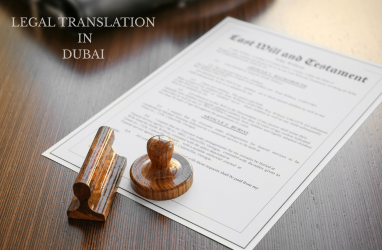What is IP Due Diligence?
IP due diligence (IPDD) can be characterized as a methodical examination of the intellectual property (IP) owned and employed by an organization engaged in a transaction. Essentially, it serves as an audit conducted on a target company's IP portfolio, executed either offensively (e.g., to purchase or in-license IP) or defensively (e.g., selling or out-licensing IP). This process aims to unveil the intrinsic value of the target company's IP, encompassing elements such as patents, trademarks, copyrights, and trade secrets.
The main goal is to do a thorough assessment of the robustness, scope, and enforceability of the target company's intellectual property. In doing so, IPDD becomes a pivotal exercise in understanding the strategic position and potential risks associated with the IP assets integral to the transaction.
In the corporate realm, this extends to intellectual property (IP), which, in today's business landscape, stands as one of, if not the most crucial element, in acquisitions and transactions. Consequently, this article delves into the realm of IP due diligence (IPDD), highlighting essential considerations like scope and challenges, further exploring best practices, and providing insight into what an IPDD checklist looks like.
Important Aspects of IP Due Diligence
The necessity of IPDD is to provide a structured approach that allows each of its facets to be addressed comprehensively; this includes questions, information discovery, scope considerations, and challenges. This results in fostering a more effective and insightful due diligence process, which is broken down as follows:
1. Key Questions for Consideration
During an IPDD transaction, it's crucial to address fundamental questions to ensure the buyer maximizes the value of their investment. These include:
-
-
- Is the buyer maximizing the transaction value?
- Will the buyer face future issues impacting their purchase, investment, or license value?
- What pre-transaction work is needed to avert costly fixes later?
-
2. Information to Discover
IPDD aims to uncover critical details about the intellectual property in question, such as:
-
-
- Existence of Liens or Other Claims on the IP
- Confirmation of IP Identity and Ownership
- Existing Licensing Agreements
- Third-Party Challenges to the IP
-
3. Considerations Defining IP Due Diligence Scope
Several factors shape the scope of IPDD, influencing the depth and breadth of the investigation.
-
-
- Size of the Deal
- Budget Implications
- Size of the Seller's IP Portfolio
- IP's Centrality to the Deal
- Buyer's Future Plans for the IP
- Registration and Licensing Status
-
4. Challenges in IP Due Diligence
Recognizing potential challenges is vital to conducting a thorough IPDD.
-
-
- Unfamiliar Security Interests
- Clarity Issues in Search Processes
- Budget Adjustments for IPDD
- Separation of IP Due Diligence Responsibilities
- Last-Minute Rushes to Address Issues
- Limited Public Record Information
-
Intellectual Property Due Diligence in Corporate Transactions
Intellectual property (IP) due diligence is a critical aspect of corporate transactions, including mergers and acquisitions, joint ventures, and licensing agreements. It involves a comprehensive assessment of the target company's IP assets, including patents, trademarks, copyrights, and trade secrets, to identify potential risks and opportunities. A thorough IP due diligence review can help buyers and investors assess the target company's IP portfolio, evaluate its value, and identify potential infringement or misuse issues. Conversely, sellers and owners can use IP due diligence to demonstrate the strength of their IP assets and to identify potential areas for improvement.
Intellectual property due diligence may involve various activities, such as reviewing IP agreements, analyzing the target company's IP filings and registrations, conducting freedom-to-operate and clearance searches, and evaluating the potential for IP litigation. By conducting a thorough IP due diligence review, parties can make informed decisions, mitigate risk, and maximize the value of their IP assets in corporate transactions.
Intellectual Property Due Diligence in Mergers and Acquisitions
Intellectual Property Due Diligence (IPDD) plays a vital role in the success of mergers and acquisitions (M&A) by assessing the value and identifying the risks associated with intangible assets. It is essential to understand the scope and validity of these assets to mitigate risks and ensure a smooth transition post-merger. A successful IP due diligence safeguards the acquiring company against potential legal disputes as well as enables them to make informed decisions regarding vavluation and incorporate strategies.





